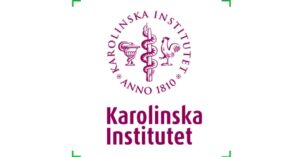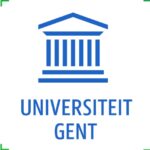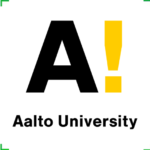Are you holding Master’s degree and ready to elevate your academic journey to the highest level? Karolinska Institute, Sweden, has announced a multiple fully funded PhD positions awaiting talented individuals like you. Don’t miss your chance to be part of our vibrant academic community. Explore the exciting PhD positions available and submit your application today!”
Candidates interested in fully funded PhD positions can check the details and may apply as soon as possible.
(01) Fully Funded PhD Position
PhD position summary/title:–Doctoral (PhD) student position in Epigenetics of inflammatory type 2 diabetes
We are seeking a highly motivated and self-driven doctoral student with a keen interest in identifying novel epigenetic mechanisms and alterations linked to inflammation in the context of type 2 diabetes. The doctoral project aims to identify functional alterations of enhancers and silencers (currently understudied) linked to gene expression in human monocytes (a major source of inflammatory mediators). The student will investigate whether the cause of such alterations is genetic (e.g. SNPs), epigenetic (e.g. microenvironment-dependent chromatin modifications and 3D organization), or both (e.g. SNPs affecting a transcription factor or chromatin-modifying cofactor to facilitate genetic-epigenetic crosstalk). The project will apply latest genome and epigenome profiling and editing approaches to human monocytes (obtained from T2D donors via our clinical collaborators) and to human monocyte-derived cell lines.
Deadline : 09.Sep.2024
(02) Fully Funded PhD Position
PhD position summary/title:– Doctoral (PhD) student position in Functional Genomics/Regulatory Transcriptomics
As a member of the Kutter lab, the successful applicant will apply, optimize and integrate novel transcriptome-wide approaches (based on bulk and single cell RNA-sequencing and epigenome profiling data) to study gene regulation and RNA processing in development and diseases using data obtained from mouse and patients. The post holder will take a strong lead in the project design and management as well as data generation, analyses and interpretation, participate in the general duties of the team and collaborate with other team members. The applicant is expected to report the scientific results leading to scientific manuscripts, attending scientific meetings, and effectively communicate with peers. The ability to work in a highly interdisciplinary and international environment, and to engage in continuous professional development is a must. The student is highly encouraged to apply to the MedBioInfo school.
Deadline :30.08.2024
View more Fully Funded PhD Positions Click Here
(03) Fully Funded PhD Position
PhD position summary/title:– Doctoral (PhD) student position in oral-systemic health research
Oral health is paramount to overall health and well-being, yet inequities in oral health continue to pose a major global public health threat. This multidisciplinary PhD project aims to explore the connection between “oral-systemic health” to fill the knowledge gap regarding the association between metabolic disorders and oral diseases. The studies are designed using a combination of clinically-based, molecular/biochemical, and registry-based epidemiological methods. The project will be carried out thorough a close collaboration between the Department of Dental Medicine, Sachsska Children’s Hospital, Södersjukhuset and Eastmaninstitutet.
The doctoral student will contribute to development of oral health care policy protocols, synthesizing evidence, analyzing clinical and large-scale national registry datasets, acquiring multi-omics datasets, and engaging in scientific writing. Additionally, the student will actively participate in departmental seminars, present research results at international/national conferences, and attend PhD courses. Furthermore, the student will contribute to the overall management and dynamics of the laboratory.
Deadline : 25.08.2024
(04) Fully Funded PhD Position
PhD position summary/title:– 1-2 doctoral (PhD) student position on computational analysis of and/or development of single-cell/spatial transcriptomics/epigenomics technologies
Our research group has performed single-cell/spatial omics studies, identifying for instance several cell states within the oligodendrocyte lineage in development and disease (Science 2016, Dev Cell 2018, 2022, Nature Medicine 2018, Nature 2019, 2023 Nature Biotechnology 2021, 2022, Neuron 2022, Cell 2024,among others). Our recent findings suggest that oligodendrocyte lineage cells might present other functional properties than previously thought, transitioning for instance to disease-associated states. The PhD student projects will focus on the development and/or computational analysis of spatial transcriptomic and epigenomic technologies, and application to multiple sclerosis. The successful candidate(s) will be integrated in a multidisciplinary team comprising computational, molecular and cellular biologists and neuroimmunologists.
Deadline : 16.08.2024
(05) Fully Funded PhD Position
PhD position summary/title:– PhD student position in computational developmental biology and stem cell research
The PhD project will aim at integrating single cell clonal, spatial and dissociated cell transcriptomics data for 3D neurodevelopmental reconstruction using a machine learning approach and beyond. Combo of single cell and spatial transcriptomics adds a critical layer of information by mapping gene expression patterns to specific locations within the nervous tissue, revealing how cells interact within their microenvironment. Single cell clonal data tracks the lineage relationships between cells, providing insight into the clonal evolution of neural cells during development and regeneration. This clonal data is crucial for identifying progenitor cells and understanding their role in generating the diverse cell types. The integration of these diverse types of datasets allows for a more comprehensive reconstruction of neurodevelopmental processes, combining insights into what is happening in individual cells (gene expression), where it is happening (spatial context), and how it happened (lineage and clonal history). Also, the combination of these dataset types (cell state, cell place and cell genealogy) is particularly powerful in modeling neurodevelopmental disorders and neurodegenerative diseases, because it enables clonal phenotyping and multiplexing of multiple CRISPR-based perturbation experiments in embryos and human brain organoids. At the level of entry, we expect a good command of Python and R, and also understanding of biology (genomics/transcriptomics).
Deadline : 15.08.2024
(06) Fully Funded PhD Position
PhD position summary/title:– Doctoral (PhD) student position in Neurobiology of Stress and Treatment Response
We are looking for a highly motivated doctoral student who is interested in studying the molecular mechanisms and behavioral correlates, associated with stress-related psychiatric disorders and their treatments. You will gain experience in the areas of molecular biology, functional genomics, pharmacology, behavioral neuroscience, and bioinformatics. You will perform experiments using novel automatic behavioral tracking systems, activity-dependent labelling techniques, and single-cell methods to identify the genes and brain circuits engaged during treatment response. You are expected to play a leading role in experimental design, execution of experiments, analysis of data, writing research findings, as well as presentation and publication of results. You will work with collaborating laboratories (locally and internationally) to learn and adapt new techniques, in case you do not have experience with a particular method. You will also have a chance to work closely and collaborate with the scientists who are pioneers in their fields.
Deadline : 15.08.2024
Connect with Us for Latest Job updates
(07) Fully Funded PhD Position
PhD position summary/title:– PhD Position in DNA Tools for Spatial Biology
This project is financed by a an ERC Advanced Grant to Björn Högberg with the aim to generate images of RNA distributions in tissue using methods that have become known as DNA Microcsopy. The principle is that by letting barcoded strands of DNA (for example cDNA) interact and concatenate in-situ, it is possible to generate adjacency information from sequence alone, independent from optical microscopy. This adjacency or neighbor-neighbor information can be used generate images in a computer. Today one person can routinely read millions of sequences on a weekly basis. And likely soon, we will be able to read billions of sequences daily in small labs. This outlook together with future increases in power of computational methods will then enable us, and others, to learn the inner secrets of biological system at a significantly faster rate.
The PhD student will need to actively contribute and innovate to the development of this technique and also use the technique to look at tissue samples to elucidate spatial heterogeneity and genetic or epigenetic mosaicism in biology, for example in stem-cell niches and germinal centers. We believe in letting people follow their passions, so the PhD student will have a considerable flexibility in driving his/her project.
Deadline : 04.08.2024
(08) Fully Funded PhD Position
PhD position summary/title:– Doctoral (PhD) student in Cell-mediated immunity
We are currently seeking a PhD student to join our team as part of an EU-funded project (REPRESSIT). Our project’s primary objective is to delve into innovative approaches that enhance check-point inhibition by bolstering the reactivity of cytotoxic immune cells. In this role, your responsibilities will encompass the planning, execution, and analysis of immunological and cell biological experiments. In particular, the group focuses on using microchip-based live cell imaging techniques to assess immune cell cytotoxicity.
Active participation in local group discussions and journal clubs will be expected, fostering a collaborative environment. Moreover, you will have the opportunity to showcase your findings during meetings with the EU-consortium and in scientific articles.
Additionally, you might find yourself engaged in mentoring project students. Your involvement will be essential in advancing our exploration of improved immune response strategies.
Deadline : 02.08.2024
(09) Fully Funded PhD Position
PhD position summary/title:–Doctoral (PhD) student position to establish cell therapy for Diabetes, within National ATMP school
The student will be part of the National ATMP school with 6 other students at different universities in Sweden. In this project, the student will further develop, upscale and GMP adapt our current pancreatic islet differentiation protocol. The cells will then be tested in terms of safety and functionality in vitro and in animal models. The student will further evaluate new transplantation strategies.
Deadline : 02.08.2024
About The Karolinska Institute, Sweden – Official Website
The Karolinska Institute sometimes known as the (Royal) Caroline Institute in English is a research-led medical university in Solna within the Stockholm urban area of Sweden. The Nobel Assembly at the Karolinska Institute awards the Nobel Prize in Physiology or Medicine. The assembly consists of fifty professors from various medical disciplines at the university. The current rector of Karolinska Institute is Ole Petter Ottersen, who took office in August 2017.
The Karolinska Institute was founded in 1810 on the island of Kungsholmen on the west side of Stockholm; the main campus was relocated decades later to Solna, just outside Stockholm. A second campus was established more recently in Flemingsberg, Huddinge, south of Stockholm.
The Karolinska Institute is Sweden’s third oldest medical school, after Uppsala University (founded in 1477) and Lund University (founded in 1666). It is one of Sweden’s largest centres for training and research, accounting for 30% of the medical training and more than 40% of all academic medical and life science research conducted in Sweden.
The Karolinska University Hospital, located in Solna and Huddinge, is associated with the university as a research and teaching hospital. Together they form an academic health science centre. While most of the medical programs are taught in Swedish, the bulk of the PhD projects are conducted in English. The institute’s name is a reference to the Caroleans.
Internationally, the university is known for research relating to the genome of the poplar tree and the Norway Spruce, and its highly ranked Institute of (industrial) Design.
Disclaimer: We try to ensure that the information we post on JobPetal.com is accurate. However, despite our best efforts, some of the content may contain errors. You can trust us, but please conduct your own checks too.
Related Posts
- 10 Fully Funded PhD Positions at Utrecht University, Netherlands
- 18 Fully Funded PhD Positions at Ghent University, Belgium
- 20 Fully Funded PhD Positions at NTNU, Norway
- 07 Fully Funded PhD Positions at Aalto University, Finland
- 10 Fully Funded PhD Positions at University of Basel, Switzerland
- 04 Fully Funded PhD Positions at Aalborg University, Denmark
- 07 Fully Funded PhD Positions at University of Helsinki, Finland
- 20 Fully Funded PhD Positions at University of Amsterdam, Netherlands
- 10 Fully Funded PhD Positions at Technical University of Denmark (DTU), Denmark
- 20 Fully Funded PhD Positions at University of Copenhagen, Denmark
- 04 Fully Funded PhD Positions at Karolinska Institute, Sweden
- 16 Fully Funded PhD Positions at Uppsala University, Sweden












